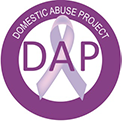By Nicole Ramspacher, LPC, Counselor and Hotline Coordinator
Many people have seen stereotypical depictions of support groups on television and in movies. While some of these depictions give accurate information about group counseling, others serve to perpetuate myths about support groups which can create anxiety around the idea of joining a group. Let’s bust some of those common myths around support groups and understand what you can expect when attending a group at the Domestic Abuse Project of Delaware County.
Myth: If I go to a group I have to share my whole story
Fact: You decide what to share in group! In fact, research indicates that going into the details of your experience in a group setting can be less helpful for long term healing. Support groups at DAP follow a “present focused” model which means that group keeps the focus of the discussion in the present. What can we learn and change now? Your story is powerful, meaningful and important and we stress the value of sharing it in the right time and space. Group counseling should always be physically and emotionally safe. Group facilitators will guide the discussion so the pacing feels safe to you and the other gr
oup members.
Myth: I’ll be judged by the other members or we might not have anything in common
Fact: Everyone who has been impacted by domestic violence has a unique experience and it is possible that you won’t have everything in common with every member of group. However, the focus of a group is highlighting commonalities despite being in a different situation. Different voices, perspectives and experiences are unique to group counseling and a great way to hear other viewpoints! Your group facilitator is there to foster an environment of safety and trust between members. It’s normal to have anxiety when starting a group (most people do) but we often find that many members feel supported by each other and even become friends outside of group.
Myth: I don’t have anything valuable to talk about or add to the group discussion
Fact: The great part about support group is that it is more structured than individual counseling. The facilitators come prepared each week with a topic for the group to discuss and process together. In some sessions the topic might resonate to your experience and you may have a lot to share, other weeks the topic may be less relevant, which is a great time to hear from other survivor’s in the group. Group facilitators are present to structure and guide the session – they keep the conversation moving!
Myth: Support groups don’t help and are less effective than individual counseling
Fact: Support groups are a highly effective way to receive support and foster healing. One of the hallmarks of traumatic experiences (especially domestic violence) is a lack of connection or sense of community. Connecting to a group and building community can be impactful when moving toward healing after experiencing domestic violence. Group counseling may help you to hear about topics or concepts from other members that you might not have considered bringing up in individual counseling.
Support groups offer a confidential and supportive space to connect with fellow survivors, learn new ideas and move forward in your healing. Support groups are a unique type of support and may not be the right fit for every survivor. If you want to make sure that each session is unique to your needs, and share details of your experiences, individual counseling may be a better fit.
Have other questions about group counseling? Feel ready to try a group for yourself? To learn more about group, ask questions or sign up, please email counseling@dapdc.org. DAP is currently offering a virtual support group (Thursdays from 1:30-3:00 p.m.). A counselor will contact you to assess if this is right support for you at this time.


